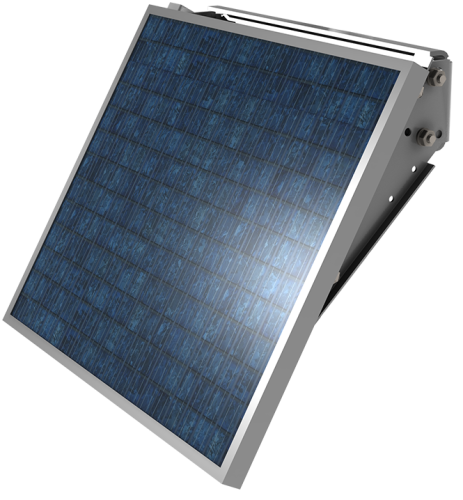Power / Solar Panels

Product Line
| Maximum Peak Power | Current at Peak | Voltage at Peak | Maximum Allowable Wind Gust Speed | Dimensions | Weight | |
|---|---|---|---|---|---|---|
SP10
|
10 W | 0.59 A | 16.8 V |
|
41.9 x 26.9 x 2.3 cm (16.5 x 10.6 x 0.9 in.) | 2.1 kg (4.6 lb) |
SP20
|
20 W | 1.19 A | 16.8 V |
|
50.0 x 42.2 x 5.1 cm (19.7 x 16.6 x 2 in.) | 4.4 kg (9.6 lb) |
31276
|
50 W (100 W peak power when two SP50s are connected to one 18529 regulator) | 2.9 A | 17.5 V |
|
83.9 x 53.7 x 5 cm (33 x 21.1 x 2.0 in.) | 6 kg (13 lb) |
SP90-L
|
90 W (180 W peak power when two SP90s are connected to one 18529 regulator) | 5.0 A | 17.9 V |
|
120.9 x 53.7 x 5.0 cm (47.6 x 21.1 x 2.0 in.) | 7.7 kg (17 lb) |
Other Products
| Maximum Peak Power | Current at Peak | Voltage at Peak | Maximum Allowable Wind Gust Speed | Dimensions | Weight | |
|---|---|---|---|---|---|---|
SP5-L
|
4.5 W | 0.27 A | 16.5 V | — | 25.1 x 26.9 x 2.3 cm (9.9 x 10.6 x 0.9 in.) | 0.9 kg (2 lb) |
Retired Products
Documents
Brochures
Frequently Asked Questions
Number of FAQs related to Solar Panels: 2
-
The SP20 sources more current than the SP10. Whether the SP20 is the best option for an application depends on the system. The SP10 sources sufficient current for many applications. Systems that use high current drain devices might require the SP20. For more information, see the "Power Supplies" application note.
-
Power requirements vary greatly across installations. For guided examples of how to calculate a station’s power consumption and determine battery and solar panel size, refer to the "Power Supplies" application note.
Privacy Policy Update
We've updated our privacy policy. Learn More
Cookie Consent
Update your cookie preferences. Update Cookie Preferences




